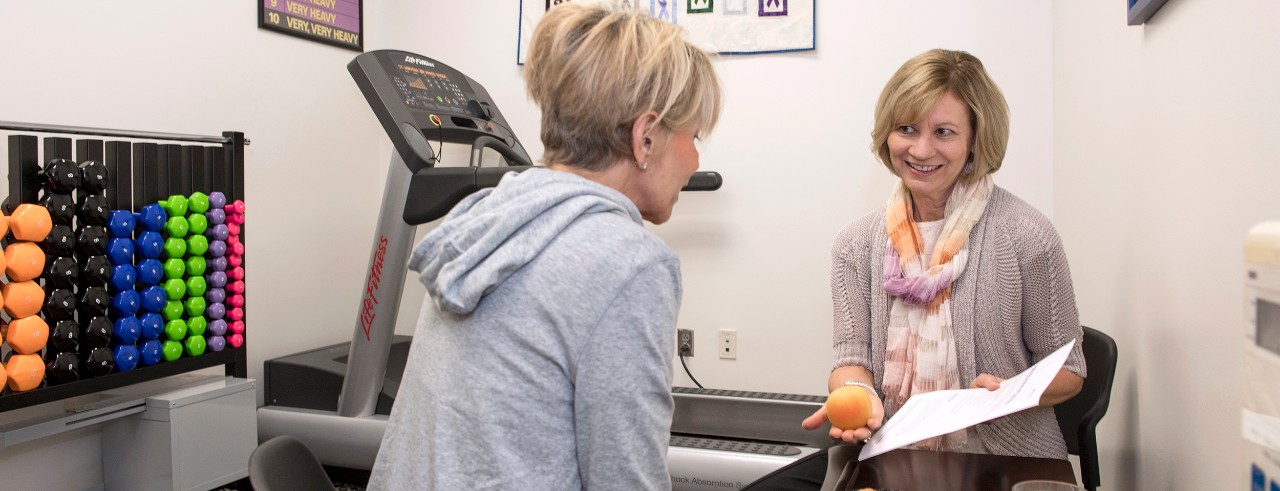
2019 cancer survivorship grants announced
Two University of Cincinnati (UC) Academic Health Center faculty members have been named recipients for the 2019 UC Cancer Institute Cancer Survivorship Pilot Research Grant.
The funding, made possible through a gift from The Robert and Adele Schiff Family Foundation, was awarded to teams lead by Caroline Morrison, PhD, assistant professor at the UC College of Nursing, and Stefanie Benoit, MD, instructor in the Department of Pediatrics at the UC College of Medicine and researcher at Cincinnati Children’s, in the amount of $50,000 per recipient to study cancer survivorship issues.
The recipients will be recognized April 5, 2019 during a reception following the 2019 medical provider educational survivorship event “Creating Healthier Cancer Survivors with Proactive Care,” being held at Kowalewski Hall on UC’s medical campus.
"Survivorship is a necessary component of cancer care as rates of survival continue to increase,” says Rajaram Nagarajan, MD, professor in the Department of Pediatrics at the UC College of Medicine, oncologist at Cincinnati Children’s and committee chair for the UC Cancer Survivorship Research Program which awards these grants. “Despite current knowledge and practice, there is a huge need for research in order to discover best practices in caring for this population. The two selected proposals encourage interaction and collaboration and facilitate exploratory research which will help in developing research methodologies and exploring new areas in cancer survivorship, which we hope will lead to external funding and make a positive impact on survivorship care.”

Caroline Morrison, PhD
Factors Contributing to Symptoms of Survivors of Adult Blood and Marrow Transplant
Caroline Morrison, principal investigator
In survivors of blood and marrow transplant (BMT), more than 50 percent report experiencing fatigue and issues with cognition and function years after completing treatment. In this study, Morrison and her team hope to gain a better understanding of underlying biological and psychosocial factors that contribute to these symptoms and how they impact quality of life in adult survivors. Researchers will conduct an observational study with 100 BMT survivors at least one year post-BMT. Of the 100 survivors, up to 40 will participate in individual interviews on risk and protective factors for symptoms, including nutritional interventions. Their project could have a significant impact on survivorship by contributing to the development of an intervention for symptom prevention and management.

Stefanie Benoit, MD
Late Effects of Hematopoietic Stem Cell Transplantation Associated Thrombotic Microangiopathy in Children and Young Adults: Chronic Kidney Disease
Stefanie Benoit, principal investigator
Thrombotic microangiopathy (TMA)—characterized by clotting in small blood vessels, breaking up of red blood cells and kidney injury—is a life-threatening complication experienced by patients with cancer, including those receiving stem cell transplantation for blood and bone cancers. Transplant associated-TMA occurs in approximately 30 percent of patients, but advances in the field have led to an increase in the number of long-term survivors of severe TMA. The long-term kidney outcomes of this new population of survivors has not been studied. Benoit and her team believe that patients who experienced transplant associated-TMA have a significantly increased risk of chronic kidney disease in comparison to other survivors who did not develop TMA. In this study, Benoit’s team hopes to describe the prevalence of chronic kidney disease in these survivors and evaluate the use of biomarkers of chronic kidney disease for early diagnosis. While this pilot study is looking at a strictly pediatric patient population to develop an algorithm for monitoring these survivors, these researchers hope their results will help guide the survivorship care of all patients with cancer who develop TMA.
Related Stories
Before the medals: The science behind training for freezing mountain air
February 19, 2026
From freezing temperatures to thin mountain air, University of Cincinnati exercise physiologist Christopher Kotarsky, PhD, explained how cold and altitude impact Olympic performance in a recent WLWT-TV/Ch. 5 news report.
Blood Cancer Healing Center realizes vision of comprehensive care
February 19, 2026
With the opening of research laboratories and the UC Osher Wellness Suite and Learning Kitchen, the University of Cincinnati Cancer Center’s Blood Cancer Healing Center has brought its full mission to life as a comprehensive blood cancer hub.
Generous gift supports renovations to UC Blue Ash Veterinary Technology Building
February 18, 2026
A longstanding relationship between Greenacres Farm in Indian Hill and the Veterinary Technology Program at UC Blue Ash College has led to a generous gift that will support a major renovation project.
